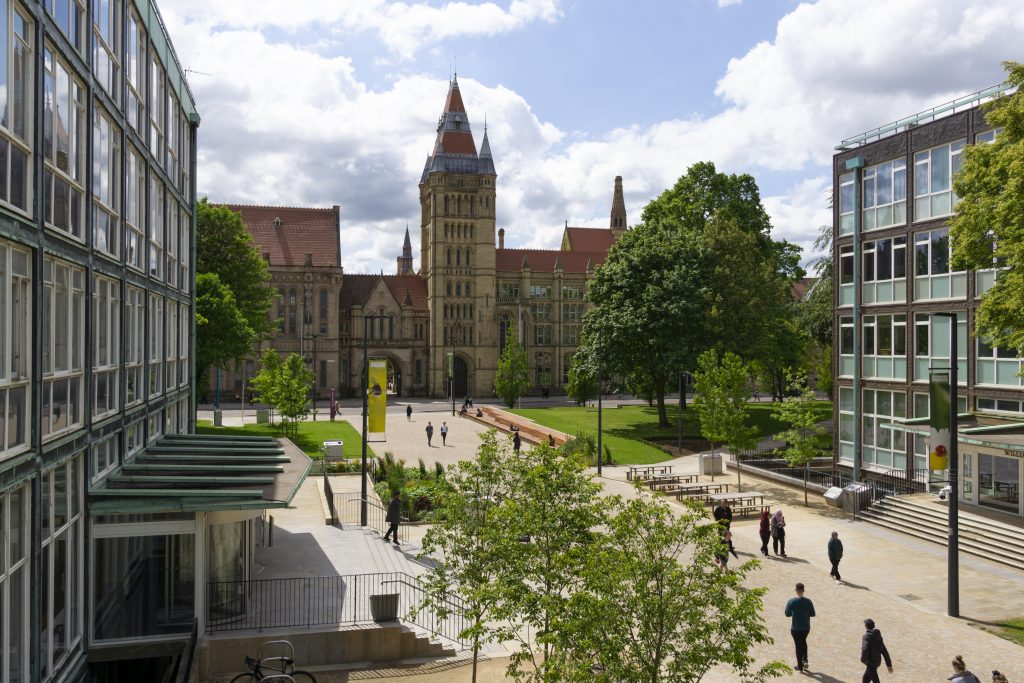
Sustainable futures: five ways social science can help us understand change
Profound social change is urgently needed to mitigate the climate crisis and meet other sustainability goals, according to the latest report from the Intergovernmental Panel on Climate Change (IPCC).
Dr Daniel Welch, a Lecture in Sociology at The University of Manchester’s Sustainable Consumption Institute, explains five ways in which social science is emerging as a driving force for implementing changes towards a sustainable future.
1) Social justice and equity are central to a sustainable future
Social science helps us understand the causes and consequences of social inequality. Inequality is central to understanding change towards a sustainable future because we are not all equally responsible for negative environmental impacts – the causes are profoundly unevenly distributed between rich and poor. Around 50% of global greenhouse gas emissions can be attributed to the world’s richest 10%, while the poorest 50% are responsible for only 10% of global emissions. Recognising that is critical for identifying realistic solutions. And the consequences of the environmental crisis are unevenly distributed – raising issues of environmental and climate justice. Social justice isn’t a ‘nice-to-have’ in transitions towards sustainability. The IPCC’s research on global scenarios that aim to limit global warming to 1.5C has found that “social justice and equity are core aspects of climate-resilient development pathways”.
2) Technological change is always socio-technical change
Transitions towards a sustainable future are often presented as a technological challenge – renewable energy, electric cars. But technological changes always cause, and take place within the context of, social change – these are processes of socio-technical change. Just think about how profoundly the technological transition from horse drawn transport to fossil-fuel driven trains, cars and planes has changed society. Or how within less than a generation smart phones and social media have transformed everyday life.
3) Understanding sustainability means understanding everyday life
It’s a commonplace to say that the level of resources we consume today – whether the food we eat, fossil fuels, or the minerals essential for electronic devices – are unsustainable. The challenge of sustainability is often framed as “consumerism” or “materialism” – and of course excessive consumption matters – but the central challenge is the environmental impact of the bundle of goods and services necessary to live a normal life in a consumer society. It is the level of resources consumed to live normal lives in the consumer societies of industrialised nations that is the issue. But today’s “normal” – whether expectations of cleanliness, comfort or convenience, mobility or digital connectivity – is very different from “normal” just a generation ago. Social science can explain these processes that rachet up environmental impacts. At the same time, we need radically changed norms and practices to transition to a sustainable society. Social science provides the tools to understand the potential barriers to, and opportunities for, that radical social change.
4) Understanding scales and agents of change
Transitions towards environmental sustainability can only be effective if far-reaching changes to lifestyles, institutions and economies complement technological change. And yet sustainability is often presented in terms of individual behaviour change: eat organic, ride a bike, plant a tree and save the world! This is what social scientists call “the individualisation of environmental responsibility”. It’s often well-meaning, and of course, those of us living high-consumption lifestyles do need to change how we live. But “individualisation” is also a convenient way of diverting responsibility from those with real power to effect change. Social science offers resources to understand processes of social change at a range of scales, from individuals and households, to organisations and institutions, to wholesale change in how societies and economies work.
5) How people understand the future shapes how social change takes place
How we imagine the future – whether in our everyday expectations, in business plans, the visions of social movements or science fiction – effects how social change towards the future actually takes place. Research I’ve conducted shows people can envisage a future sustainable society, but they really struggle to imagine the social processes involved to get us there. The novelist Amitav Ghosh argues “The climate crisis is also a crisis of culture, and thus of the imagination”. Social science has tools to understand how people imagine the future and processes of social change, to help people creatively engage in thinking about possible futures and the routes by which we might get there. We have tremendous imaginative capacity for cultural change. And the lessons of history show that radical social and cultural change can and does happen, in the space of a generation. But we need to understand those processes so we can help shape them.
Interested in driving social change? Check out our new MA Social Change, Environment and Sustainability course.
Blog supported by the Impact(H) Campaign, click the link to find out more.






0 Comments